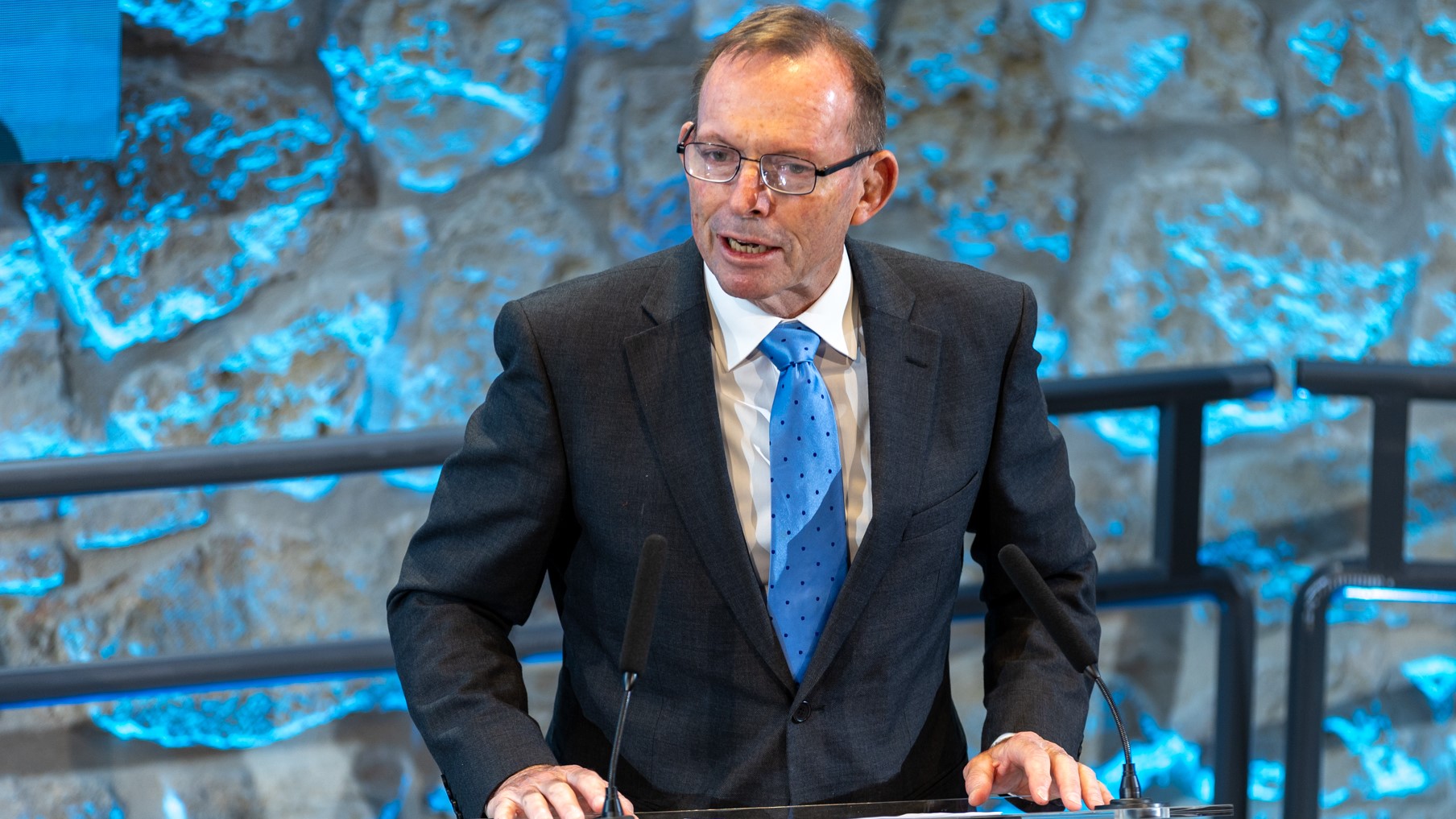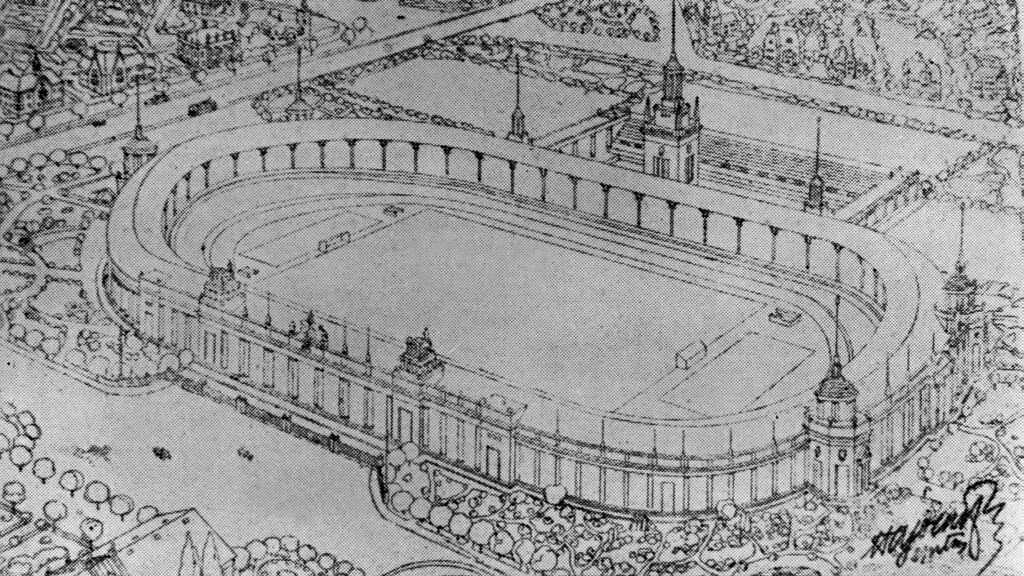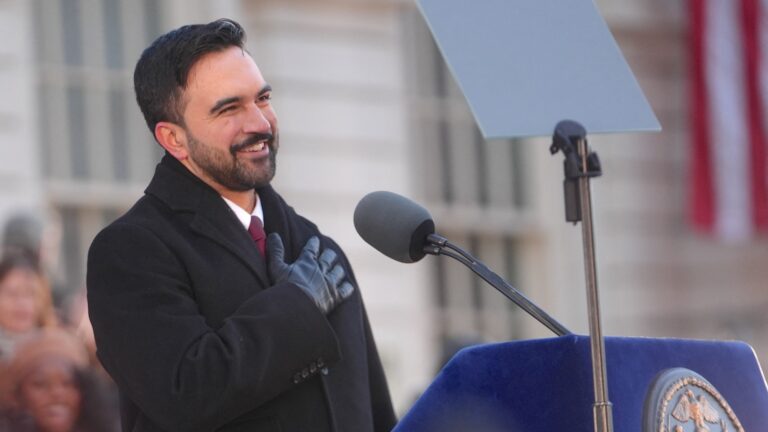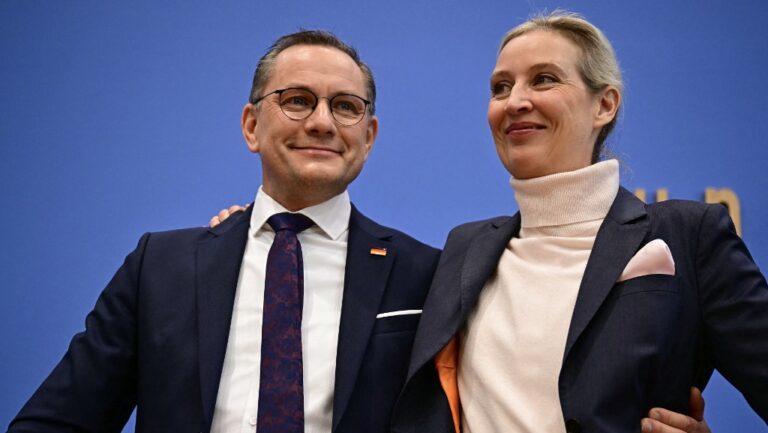Australia is the only country in the world in recent times to have stopped a wave of illegal migration by boat. Just as Hungary is the only country in Europe to have secured its land borders by building a fence against illegal migration, to the great chagrin of Brussels.
Australia succeeded because the government that I led was convinced that a country that lost control of its borders, over time, would lose control of its destiny. Hungary succeeded because the Orbán government was determined that the country should keep its character, and feared that a large influx of outsiders, not speaking its language and unfamiliar with Hungarian culture, could change the country, perhaps beyond recognition.
People who come illegally are breaking the law. People who come in very large numbers, illegally or not, are changing the country. And that’s the main issue today: the impact of immigration on the character of Western countries with strong and unique cultures that their peoples have every right to take pride in and preserve, especially given that almost no cultures are fairer or more generous to all their citizens.
It’s what makes them attractive that makes them well worth preserving. The truth is that not all cultures are equal. A culture with equal rights for women, for instance, beats one without them; something largely glossed over in Western universities, which are enthusiastic for every culture but their own.
There’s no real mystery to Australia’s success, as with Hungary’s. The government of the day knew what it wanted to do: to keep out foreigners with no permission to enter; and it willed the means to make that happen, undeterred by hand-wringing from those who claimed it was immoral to keep out people seeking a better life.
And here’s another key truth. Whatever activist tribunals might hold, people who’ve moved through several countries to a preferred destination are no longer refugees seeking asylum but would-be economic migrants seeking a better life. In one sense, who could blame them? But wanting a better life should not found a right to reside in another country any more than wanting a better house should found a right to squat in someone else’s.
To the measures put in place by a previous centre-right government—namely, turning boats around when it was safe to do so; processing offshore people who made landfall; and temporary protection visas, not residency, for those who couldn’t be kept out—my government made two significant additions: first, a unified command structure under a senior general, Operation Sovereign Borders; and second, and most critically, when people smugglers scuttled their boats, keeping their passengers on a mothership, until such time as they could be put into unsinkable orange life rafts, just outside Indonesian waters, with only enough fuel to make it back.
‘Europe still has hundreds of thousands of people coming illegally every year’
In July 2013, the peak month, there were more than 5000 people who arrived illegally by boat. Then the government changed, and by early 2014, just a couple of months after the people smugglers started to find that scuttling their boats would no longer mean their passengers would be picked up by the navy or the customs service and taken to Australia, the illegal migrant boats stopped coming.
A key moment was the full front-page picture in our most-read newspaper of a big orange lifeboat, washed up on a beach in Java. It was a loud and clear message to would-be illegal migrants that giving 10,000 dollars to a people smuggler was actually buying a return ticket to nowhere.
Since then, for more than a decade, there have been no successful people smuggling ventures to Australia. People smugglers have tested the resolve of the subsequent government, but, so far, to its credit, it’s swiftly deported the few who’ve made it to Australia, because the source and transit countries know that this is an evil trade that must not be allowed to revive.
Europe still has hundreds of thousands of people coming illegally every year. Britain, in particular, has thousands, most months, crossing the channel in rubber-duckies, with regular mass drownings. It’s the dire consequence of allowing lawfare, plus misplaced rich country guilt, to prevent the swift repatriation of illegal migrants to their country of origin or to their most recent jumping off point.
‘No country can tolerate for long what amounts to a peaceful invasion, for that’s what this is’
Boat people picked up in the Mediterranean should be landed back on the shores of Libya. Boat people picked up in the English Channel should be sent back to France, even if it has to be via a Royal Marine operation in the dead of night. After all, it’s been done before. And that should shame the French into stopping this criminal trade, rather than making it someone else’s problem. If it’s the European Convention on Human Rights that’s stopping Britain from removing illegal arrivals, the parliament should legislate it away. No country can tolerate for long what amounts to a peaceful invasion, for that’s what this is.
But just as much as illegal migration has to be stopped, legal migration has to be controlled.
Australia might be the global poster boy for stopping illegal migration by boat, but we’re no exemplar when it comes to legal migration, which is often even more significant for the long-term direction of a country.
Over the past two years, some one and a half million people have arrived quite legally in Australia intending to stay for more than 12 months. Net overseas migration—those coming for 12 months or more, less those leaving—is close to a million; and every one of them needs something to do, somewhere to live, and a means of getting around. Hence, the downward pressure on wages, the upward pressure on housing costs, and the massive pressure on infrastructure.
Even for a country of 28 million, if sustained, close to half a million newcomers a year is transformative. It’s the equivalent of a city the size of Canberra, every year. It certainly adds to the size of the overall economy. But it only adds to individuals’ wealth if the newcomers, on average, are more productive than the locals. And even if it does add to wealth, it only adds to social well-being if nearly all the newcomers are keen to fit in, which can’t always be taken for granted.
Quite obviously, modern Australia has an indigenous heritage, a British foundation, and an immigrant character. Yet this has become an uncomfortable truth; something to regret or be ambivalent about. Official Australia wants to make more of our indigenous heritage and less of our British foundation. There’s a growing gulf between official and mainstream Australia: one eager to stress our diversity; the other, much keener on building unity.
Back in 1988, to mark the bicentenary of settlement, our best ever Labour prime minister declared that Australia had ‘no hierarchy of descent’ and ‘no privilege of origin’. But his most recent Labour successor has bid to disturb that fundamental equality by inserting into the constitution a new advisory body, or Voice, that would have given people with indigenous ancestry a special say over how we’re governed.
It reflected an official unease with a modern Australia that’s supposedly unfair to minorities. The failure of that referendum reflected a popular mood at odds with that of an official class that would prefer to see our history as a story of shame. For many in the academe, the bureaucracy, and the media, high immigration, especially from Asia, like the Voice, is another way to atone for being a largely Anglo–Celtic culture with a largely Judeo–Christian ethos.
Today, about 30 per cent of the Australian population is overseas-born. Compared to about 15 per cent in the US and the UK. Today, more than two million Australians were born in either China or India. We claim to be the world’s most successful immigrant nation, but can we stay that way, based on official bromides like ‘our diversity is our unity’—in other words, that all we have in common is that we don’t have anything in common?
‘Increasingly, this is an issue for every immigrant nation, especially the Anglosphere countries, wracked with doubt and guilt about their history’
Increasingly, this is an issue for every immigrant nation, especially the Anglosphere countries, wracked with doubt and guilt about their history, of slavery, of colonialism and of the dispossession of the original inhabitants.
It was during the 1850s, when the settler population of Australia pushed through one million, that about 50,000 Chinese arrived to take advantage of the gold rush, the first large influx not from Britain. First, there was curiosity about the strangers, then resentment at competition for work and for dwindling alluvial gold, and eventually, occasional violence. Most of the Chinese diggers returned, but some thousands stayed, becoming an accepted part of the wider Australian community even in the days when Asian immigration was officially banned.
For instance, Lowe Kong Meng was one of the founders of the Commercial Bank of Australia. Senator Thomas Bakhap served in the federal parliament. Trooper Billy Sing was one of our most celebrated soldiers of the Great War. The gradual integration and assimilation of the first wave of Chinese to stay shows how people of very different backgrounds and cultures can eventually flourish in a society disposed to extend a ‘fair go’ to newcomers, especially those determined to ‘have a go’.
After World War II, under the slogan ‘populate or perish’, millions of ‘new Australians’ were invited in. Members of the largest of these immigrant communities, the Italians and the Greeks, swiftly moved beyond ethnic enclaves, and thanks to work and sport, became fully part of the Australian mainstream.
Then there’s Jewish Australians, a small but significant element in Australian society from our beginning. Sir Isaac Isaacs was chief justice and then governor-general in the 1930s. Sir John Monash, our finest general and the creator of Victoria’s modern power system, was the son of German Jewish migrants. Australian Jews have role modelled how to maintain a distinct community and identity while being completely committed Australians.
It was the notion of multiculturalism, imported from Canada in the 1970s, that first encouraged migrants to maintain their languages and distinctive characteristics, in order, supposedly, to enliven the Anglo–Celtic mainstream, and to make it easier for us to bond with other countries. At its best, it meant migrants becoming Australians in their own way and at their own pace, without pressure to conform. And given that migrants come because they like what’s here—to join us, not change us—the gravitational pull of the Australian way of life has continued to make wonderful Australians of millions of newcomers.
Yet in sufficient numbers, change us they do. Especially now that cheap air travel and the internet enable migrants, should they choose, almost to live in two countries at once.
The Indians who are now our largest immigrant source are readily adapting, starting businesses, mixing in the general community, and frequently intermarrying, perhaps pre-prepared for life in Australia by their homeland’s ready acceptance of democracy, the rule of law and, to a considerable extent, the English language.
And likewise, the Chinese, many of whom have come via Hong Kong, Singapore, Malaysia, Indonesia or Taiwan. Even the Australians of Chinese background who spend considerable time in China, having tasted the largeness of life here, are more likely to be ambassadors for Australian values in China than the other way round.
There is an issue, though, here as elsewhere, with some migrants, especially from the Middle East, unaccustomed to religious pluralism, minority rights, and a secular state. For a small minority, the ‘death to the infidel’ mindset is hard to shake, plus a tendency to judge issues in terms of religious solidarity, notwithstanding the Australian citizenship pledge specifying ‘loyalty to Australia and its people, whose democratic beliefs I share, whose rights and liberties I respect, and whose laws I will uphold and obey’.
‘Perhaps there needs to be…a more exacting citizenship test to weed out people who would prefer merely to live in Hotel Australia’
There wasn’t much respect for Australian values in the angry mob outside the Sydney Opera House, two days after the 7 October atrocity, shouting ‘f—-k the Jews’, and what sounded very much like ‘gas the Jews’. Or in Islamic community leaders describing 7 October as a ‘day of victory’. Perhaps there needs to be a longer probationary period before residents can become citizens and a more exacting citizenship test to weed out people who would prefer merely to live in Hotel Australia than sincerely to join Team Australia.
Substantially reducing immigration will offend all the vested interests that benefit from it: the universities, colleges and language schools whose business model depends on fee-paying overseas students seeking to work and to immigrate rather than just to study and to return; the businesses who’d prefer to import labour rather than to train Australians or to pay people what they’d need to do menial jobs; the reform-shy officials who’ve been relying on immigration as the lazy way to generate positive economic growth; and the moralists who want large numbers of migrants in order to dilute the Anglo culture they find dull or otherwise dislike; plus a lot of recent immigrants who are inclined to take personally any critique of high immigration.
It’s a sensitive topic that can’t readily be discussed without affirming the contribution that migrants typically make; the centrality of migration to the great Australian story; and the ongoing benefit of skilled migration, especially when infrastructure and housing can cope.
But in the end, Australia has to run its migration programme much more for the benefit of its existing citizens than for potential new ones, and for the good of society as a whole than for any of its constituent communities. We’re perfectly entitled to discriminate on the basis of values, if we’re to avoid importing destructive passions. And if we’re proud of Australia as it is, as we’re entitled to be, we should be wary of immigration that risks making the native born feel like strangers in their own neighbourhoods.
‘We’re perfectly entitled to discriminate on the basis of values, if we’re to avoid importing destructive passions’
The immediate family of Australian citizens should always have the right to come here. There should always be a welcome for any essential workers who really can’t be found locally. And it would be folly to turn away highly skilled people, whose local employers are prepared to pay a substantial foreign workers’ tax annually, at least until these staff have qualified for citizenship.
But even if only to maintain their own standards, universities and colleges should not rely so much on foreign students, many with little fluency in English; businesses should not be permitted to bring in foreign workers without first offering locals more training or higher pay; and the so-called skilled migration programme—inviting in people on the basis of literally hundreds of occupations supposedly in demand—should be abolished in favour of a scheme that admits people for a specific job with a specific employer that a specific person really is needed to fill.
Employment should be the main basis for immigration because working and paying taxes from day one is also the best way to integrate and ultimately to assimilate into the wider Australian community. Almost nothing engenders more pride in Australia than someone from an obvious migrant background, speaking with a broad Australian accent, succeeding in something that reflects well on our country. But that means migrants who see Australia as a place to be committed to, rather than simply to be taken advantage of. Like the members of an extended family, what Australians should all share is mutual solidarity and a determination to work together for the common good.
Related articles:







